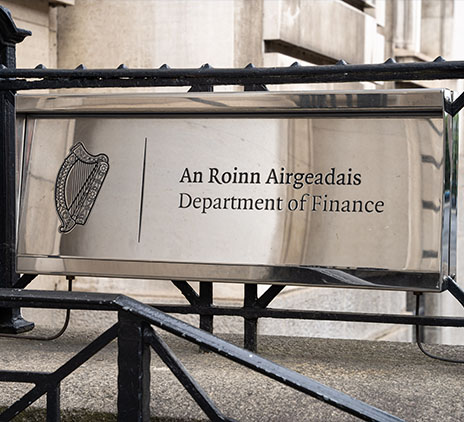-
Aviation Advisory
Our dedicated Aviation Advisory team bring best-in-class expertise across modelling, lease management, financial accounting and transaction execution as well as technical services completed by certified engineers.
-
Consulting
Our Consulting team guarantees quick turnarounds, lower partner-to-staff ratio than most and superior results delivered on a range of services.
-
Business Risk Services
Our Business Risk Services team deliver practical and pragmatic solutions that support clients in growing and protecting the inherent value of their businesses.
-
Deal Advisory
Our experienced Deal Advisory team has provided a range of transaction, valuation, deal advisory and restructuring services to clients for the past two decades.
-
Forensic Accounting
Our Forensic and Investigation Services team have targeted solutions to solve difficult challenges - making the difference between finding the truth or being left in the dark.
-
Financial Accounting and Advisory
Our FAAS team designs and implements creative solutions for organisations expanding into new markets or undertaking functional financial transformations.
-
Restructuring
Grant Thornton is Ireland’s leading provider of insolvency and corporate recovery solutions.
-
Risk Advisory
Our Risk Advisory team delivers innovative solutions and strategic insights for the Financial Services sector, addressing disruptive forces, regulatory changes, and emerging trends to enhance risk management and foster competitive advantage.
-
Sustainability Advisory
Our Sustainability Advisory team works with clients to accelerate their sustainability journey through innovative and pragmatic solutions.

-
 Asset management Asset management of the futureIn today’s global asset management landscape, there is an almost constant onslaught of change and complexity. To combat such complex change, asset managers need a consolidated approach. Read our publication and find out more about what you can achieve by choosing to work with us.
Asset management Asset management of the futureIn today’s global asset management landscape, there is an almost constant onslaught of change and complexity. To combat such complex change, asset managers need a consolidated approach. Read our publication and find out more about what you can achieve by choosing to work with us. -
 Internal Audit Maintaining Compliance with New EU Pension Directive IORP IIOn 28 April 2021, the Irish Government transposed IORP II (Institution for Occupational Retirement Provision), an EU directive on the activities and supervision of pension schemes, into law.
Internal Audit Maintaining Compliance with New EU Pension Directive IORP IIOn 28 April 2021, the Irish Government transposed IORP II (Institution for Occupational Retirement Provision), an EU directive on the activities and supervision of pension schemes, into law. -
 Risk, Compliance and Professional Standards FRED 82 – Periodic Updates to FRS 100 – 105The concept of a new suite of standards for the UK and Ireland, aligning with international financial reporting standards, was first conceived in 2002
Risk, Compliance and Professional Standards FRED 82 – Periodic Updates to FRS 100 – 105The concept of a new suite of standards for the UK and Ireland, aligning with international financial reporting standards, was first conceived in 2002 -
 Audit and Assurance Auditor transition: how to achieve a smooth changeoverAppointing new auditors may seem like a daunting task that will be disruptive to your business and a drain on the finance function. Nevertheless, there are a multitude of reasons to consider a change, including simply seeking a ‘fresh look’ at the business.
Audit and Assurance Auditor transition: how to achieve a smooth changeoverAppointing new auditors may seem like a daunting task that will be disruptive to your business and a drain on the finance function. Nevertheless, there are a multitude of reasons to consider a change, including simply seeking a ‘fresh look’ at the business.
-
Corporate Tax
Our Corporate Tax team is made up of more than 40 highly experienced senior partners and directors who work directly with a wide range of domestic and international clients; covering Corporation Tax, Company Secretarial, Employer Solutions, Global Mobility and Tax Incentives.
-
Financial Services Tax
The Grant Thornton team is made up of experts who are fully up to date in terms of changing and evolving tax legislation. This is combined with industry expertise and an in-depth knowledge of the evolving financial services regulatory landscape.
-
Indirect Tax Advisory & Compliance
Grant Thornton’s team of indirect tax specialists helps a range of clients across a variety of sectors including pharmaceuticals, financial services, construction and property and food to navigate these complexities.
-
International Tax
We develop close relationships with clients in order to gain a deep understanding of their businesses to ensure they make the right operational decisions. The wrong decision on how a company sells into a new market or establishes a new subsidiary can have major tax implications.
-
Private Client
Grant Thornton’s Private Client Services team can advise you on all areas of financial, pension, investment, succession and inheritance planning. We understand that each individual’s circumstances are different to the next and we tailor our services to suit your specific needs.


Every entity with significant interest expenses should carry out detailed modelling to understand the impact of these ILR rules on their future tax liabilities. The ILR will have a significant impact on certain financial services industries and how they can structure their funding without incurring a restriction on interest deductibility.

What are the implications for the structured finance industry?
- The ILR have the potential to have a significant impact on s.110 companies who are typically debt financed. Where interest expenses exceeds interest income, this may result in some limitation on interest deductions.
- Positively, gains/losses on debts are included in the definition of interest equivalent, but only where “reasonable to consider such amounts are economically equivalent to interest”. S.110 companies will need to determine what element of this income/expense would be reasonable to consider interest equivalent.
- Where certain types of income are not deemed to be interest or an interest equivalent, this may result in an unexpected mismatch and a resultant restriction on interest deductibility.
What are the implications for the aviation finance industry?
- A positive development for the aviation finance industry is the inclusion of the finance component of lease rentals in the definition of interest equivalent for entities carrying on a leasing trade.
- However, determining the elements of lease compensation payments and maintenance events is complex and will need detailed consideration and modelling.
- Aviation finance entities will now need to look at their finance and operating leases separately and determine the components of income and expenses equivalent to interest.
Other points to note
- The Single Company Worldwide Group provision may be helpful for orphan s.110 entities, allowing access to the group ratio to such entities even though they are not members of a worldwide group.
- Where the S.110 taxable income is calculated under 2004 Old Irish GAAP, these accounts should be used for the purposes of the calculations under the ILR, as opposed to the statutory accounts.
- The interest group detailed above could include an Irish QIAIF (Qualifying Investor Alternative Investment Fund) established as a corporate (e.g. an ICAV) which may be useful in a s.110 / QIAIF structure.
Receive the latest insights, news and more direct to your inbox.
What next?
The next stage of the process at which amendments may be made is the Committee Stage followed by the Report Stage and the Seanad. It is unclear if any significant amendments will be made at these stages. The ILR are expected to be signed into law in December, and will come into effect for “accounting periods” commencing on or after 1 January 2022. This allows for more time for modelling for non-31 December year ends where applicable.
Get in touch
For additional information on any of the foregoing provisions or assistance with modelling, please feel free to contact us.










